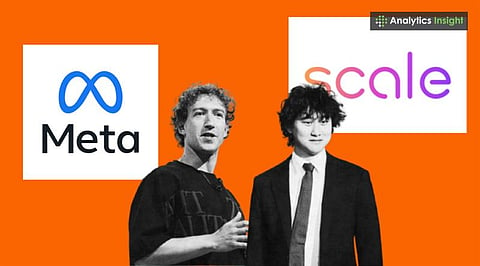

Meta’s $14.3 billion Scale AI investment is falling apart just months after the deal. The partnership, meant to boost Meta Superintelligence Labs (MSL), has been hit by leadership changes and concerns over data quality.
One high-profile exit came when Scale AI’s former Senior Vice President, Ruben Mayer, left Meta within two months. According to some sources, Mayer wasn't a part of the TBD Labs unit despite his role in AI data operations.
Mayer disputed this version, clarifying to TechCrunch that he was part of TBD Labs from the beginning and left due to personal reasons. Still, his quick departure highlights tensions within the Meta AI partnership. Researchers inside Meta have raised concerns over the quality of Scale AI’s labeling services, preferring vendors like Surge and Mercor. This raises questions about the value of such a massive investment if rival providers are still widely used.
Executive departures are just one side of the difficulties Scale AI faces. Meta Superintelligence Labs no longer uses Scale AI alone. It has opted for multiple vendors. Given Meta's investment, this is unexpected and indicates concern about relying on a single provider. Several researchers have called out the AI company’s data as "low quality," damaging trust in the collaboration.
Meanwhile, Scale AI has been hit by layoffs. The company cut 200 jobs in its data labeling division in July, citing market shifts. Once a strength, its crowdsourcing model struggles against competitors who have built operations on high-paid, domain-specific experts.
While Scale AI is trying to pivot with its Outlier platform, rivals like Surge and Mercor are expanding quickly. Meta’s ongoing use of these competitors adds weight to concerns about the investment’s long-term payoff.
With the Meta Scale AI investment, the meta initiative was to catch up with Google and OpenAI, but the early results suggest turbulence. Lots of leadership changes, a noticeable round of layoffs, and a dependence on competitors’ suppliers all paint a pretty uneasy picture of the collaboration.
Meta’s aggressive AI push, including massive data center buildouts and talent acquisitions, shows commitment, but consistency remains questioned.
Other companies like OpenAI and Google have a more focused and structured approach compared to Meta’s AI operations. Meta's $14.3 billion investment is still redeemable if it can resolve the quality issues and bring some order to its leadership. At least for now, the investment in Meta Scale AI simultaneously captures both the hope of the investment and the risk of the AI race.
